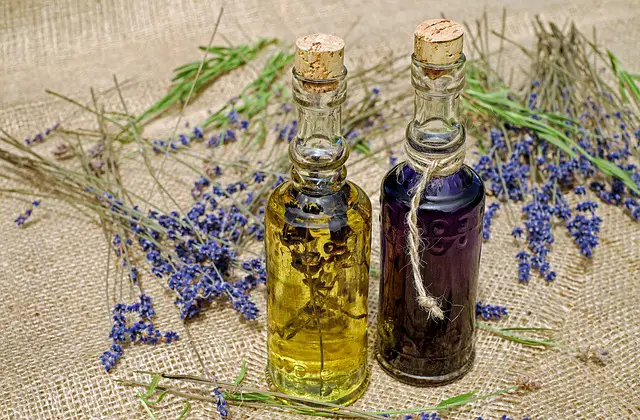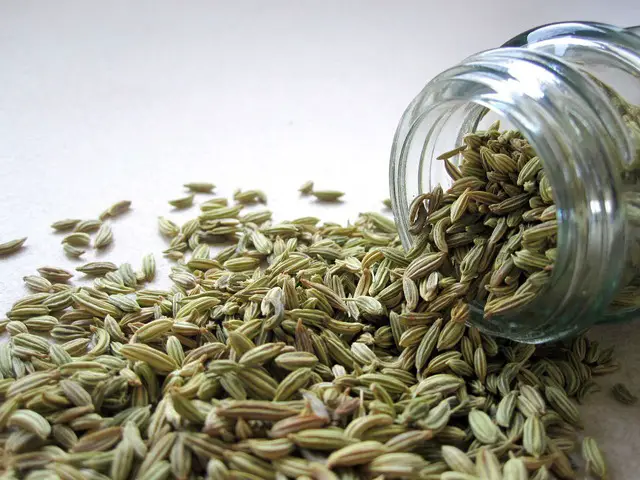What's On This Page
Charley horses are involuntary muscle contractions, often occurring in the legs, leading to pain and discomfort. These spasms can be triggered by factors like dehydration, mineral imbalances, and certain medications. Traditional relief methods include stretching and applying heat, but essential oils have emerged as a potential alternative remedy.
Essential oils, known for their anti-inflammatory and pain-relieving properties, are being explored for their effectiveness in alleviating charley horse symptoms. This blog post will examine the scientific evidence supporting the use of essential oils in providing relief from these painful muscle spasms. We’ll identify specific oils that have shown promise and provide guidance on their safe and effective use for charley horse relief.
The most common area for Charley horses is within the legs, around the thigh muscles. This is due to the daily pressure and uses these areas go through. The saving grace is that a home remedy will do the job in most cases. If there is a cause for concern or prolonged pain, speak to your doctor.
Common causes for Charley horses
1. Lactic Acid Buildup
- Explanation: Overused muscles can accumulate lactic acid, leading to cramps.
2. Injuries or Pressed Nerves
- Explanation: Muscle injuries or nerve compressions can trigger cramps.
3. Dehydration
- Explanation: An electrolyte imbalance from dehydration causes cramps.
- Reference: OrthoInfo.
4. Sudden Muscle Pressure
- Explanation: Cramps can occur from intense activity without a proper warm-up.
5. Medication Side Effects
- Explanation: Diuretics can decrease potassium levels, causing cramps.
6. Poor Shoe Support
- Explanation: Improper footwear during physical activities can cause cramps.
7. Pregnancy
- Explanation: Increased weight and circulation changes during pregnancy can lead to cramps.
8. Mineral Imbalances
- Explanation: Imbalances in sodium, potassium, calcium, and magnesium can cause cramps.
- Reference: OrthoInfo, NCBI – Muscle Cramps.
9. Medical Conditions
- Explanation: Diabetes, nerve, liver, or thyroid disorders increase cramp risk.
- Reference: MedlinePlus.
Essential Oils For Charley Horses and Leg Cramps
- Lavender
- Thyme
- Marjoram
- Peppermint
- Fennel
- Eucalyptus
- Ginger
- Roman Chamomile
- Juniper
- Turmeric
- Frankincense
Lavender

Lavender oil, rich in bioactive compounds, offers potential relief for Charley Horses and leg cramps.
Analgesic and Anti-inflammatory Properties
Lavender oil’s analgesic and anti-inflammatory properties, especially from Alpha-Terpineol, can alleviate muscle cramp pain (Essential Oils: Ancient Medicine (Illustrated ed.)).
Relaxant Effects
Compounds like linalool and linalyl acetate in the oil can relax muscles and reduce involuntary contractions. Linalool inhibits acetylcholine, a neurotransmitter in muscle contraction (The Essential Oils: Volume One History — Origin In Plants Production — Analysis).
Improved Blood Circulation
Beta-Ocimene in lavender oil enhances blood circulation, ensuring muscles get oxygen and nutrients, reducing cramp risk (Essential Oils: Ancient Medicine (Illustrated ed.)).
Application
Lavender oil can relieve Charley Horses and leg cramp pain. Its relaxant effects reduce muscle contractions, and improved circulation prevents cramps.
Usage
Apply diluted lavender oil to the affected area and massage. Inhaling its aroma can also relax muscles.
Reference
Therapeutic compounds in lavender oil, including Alpha-Terpineol, Beta-Ocimene, Linalool, and Linalyl acetate, are supported by DrugBank data.
Thyme

Thyme oil, containing Terpinen-4-ol, Carvacrol, and Thymol, may offer relief for Charley horses and leg cramps.
Terpinen-4-ol
This compound’s anti-inflammatory and analgesic properties could reduce muscle inflammation and pain (Essential Oils: Ancient Medicine (Illustrated ed.)).
Carvacrol and Thymol
These compounds, known for their antispasmodic properties, could alleviate muscle spasms and pain (The Essential Oils: Volume One History — Origin In Plants Production — Analysis by Ernest Guenther).
DrugBank Insights
Thyme oil’s composition is detailed on DrugBank, highlighting its potential in addressing muscle cramps and spasms (DrugBank – Thyme Oil).
Application
For Charley horses and leg cramps, dilute Thyme oil with a carrier oil and massage into the affected area to promote healing and relaxation.
Marjoram

Marjoram Oil for Charley Horses and Leg Cramps:
Properties: Marjoram oil is derived from a herb rich in vitamins and minerals, including a high vitamin C content known for immunity-boosting and antiviral effects[^4^].
Benefits for Charley Horses and Leg Cramps:
- Antianxiety Effects: Marjoram oil can alleviate stress and anxiety, potential triggers for muscle cramps, by relaxing nerves and muscles[^4^].
- Aromatherapy: The oil aids in mental and physical balance, relieving stress and potentially reducing muscle cramps[^4^].
Therapeutic Compounds:
- Linalool: Known for anti-inflammatory and pain-relieving properties, it can alleviate pain from Charley Horses.
- Alpha- & Y-Terpinenes: These antioxidants may prevent muscle cramps by reducing oxidative stress.
Usage: Marjoram oil can be inhaled or applied topically (when diluted) to relax muscles and alleviate stress. Consultation with a healthcare professional before use is advised.
Sources:
- Rubin, J. (2017). Essential Oils: Ancient Medicine.
- The Essential Oils: Volume One by Ernest Guenther.
- The Pharma Innovation Journal[^4^].
Peppermint

Peppermint oil, containing menthol and menthone, offers relief for Charley horses and leg cramps (DrugBank).
Properties:
- Analgesic Effects:
- Menthol induces a cooling sensation, alleviating pain (Rubin, J. (2017). Essential Oils: Ancient Medicine).
- Anti-inflammatory:
- Menthol and menthone reduce inflammation and swelling (Rubin, J. (2017). Essential Oils: Ancient Medicine).
- Muscle Relaxant:
- Menthol eases muscle contractions and spasms (The Essential Oils : Volume One History — Origin In Plants Production — Analysis).
Application:
Menthol provides a cooling effect for immediate relief, and menthone aids in reducing inflammation, beneficial for Charley horses and leg cramps.
Usage:
Dilute peppermint oil with a carrier oil and apply to the affected area, massaging gently to improve absorption and blood circulation.
Peppermint oil offers pain relief and muscle relaxation for Charley horses and leg cramps. Conduct a patch test and seek professional advice.
Sources:
- Rubin, J. (2017). Essential Oils: Ancient Medicine
- The Essential Oils : Volume One History — Origin In Plants Production — Analysis
- DrugBank – Peppermint Oil
Fennel Oil for Charley Horses and Leg Cramps:

Properties:
- Anethole:
- Effect: Offers anti-inflammatory and pain-relieving benefits.
- Relevance: Reduces muscle inflammation and pain from Charley Horses.
- Source: Rubin, J. (2017). Essential Oils: Ancient Medicine.
- Benzene:
- Effect: Present in fennel oil in low concentrations.
- Relevance: No direct link to Charley Horses treatment.
- Source: The Essential Oils: Volume One History — Origin In Plants Production — Analysis by Ernest Guenther.
- Limonene:
- Effect: Anti-inflammatory.
- Relevance: Reduces muscle inflammation, aiding in Charley Horses relief.
- Source: Rubin, J. (2017). Essential Oils: Ancient Medicine.
Usage Recommendation: Apply diluted fennel oil to affected areas. Dilute with a carrier oil before use. Conduct a patch test first. Consult a healthcare professional if pregnant, nursing, or on medication.
References:
- DrugBank – Fennel
- Rubin, J. (2017). Essential Oils: Ancient Medicine.
- The Essential Oils: Volume One History — Origin In Plants Production — Analysis by Ernest Guenther.
Always consult a healthcare professional before using essential oils.
Eucalyptus

Eucalyptus oil, containing Alpha-Terpineol and Eucalyptol (1,8-cineole), may offer relief for Charley horses and leg cramps due to its anti-inflammatory, analgesic, and spasmolytic properties.
Properties of Eucalyptus Oil:
- Anti-inflammatory: The oil helps reduce inflammation associated with muscle cramps (Rubin, J. (2017). Essential Oils: Ancient Medicine).
- Analgesic: Eucalyptol (1,8-cineole) contributes to the oil’s pain-relieving effects, offering relief from muscle cramp pain (The Essential Oils: Volume One History — Origin In Plants Production — Analysis by Ernest Guenther).
- Spasmolytic: It aids in relaxing muscle spasms, beneficial for Charley horses (Rubin, J. (2017). Essential Oils: Ancient Medicine).
Alpha-Terpineol and Eucalyptol (1,8-cineole):
Eucalyptol is noted for its anti-inflammatory and analgesic properties, potentially reducing pain and inflammation from Charley horses and leg cramps. Alpha-Terpineol’s role, though not directly studied for muscle cramps, may enhance these effects (DrugBank).
Usage:
For relief, dilute eucalyptus oil in a carrier oil and massage into the affected area. Conduct a patch test to avoid allergic reactions.
Note:
Consult a healthcare professional before using eucalyptus oil for muscle cramps to ensure safety.
Ginger

Ginger oil, rich in Alpha-Zingiberene and Gingerol, offers potential relief for Charley Horses and leg cramps due to its anti-inflammatory and pain-relieving properties.
- Anti-inflammatory Properties Gingerol reduces inflammation, potentially alleviating Charley Horses’ severity.
Reference: Rubin, J. (2017). Essential Oils: Ancient Medicine.
- Pain-relieving Effects Alpha-Zingiberene and Gingerol effectively reduce pain associated with Charley Horses.
Reference: The Essential Oils: Volume One History — Origin In Plants Production — Analysis by Ernest Guenther.
- Muscle Relaxant The oil eases muscle tension, potentially reducing cramp duration.
Reference: Rubin, J. (2017). Essential Oils: Ancient Medicine.
- Blood Circulation Ginger oil enhances blood flow, aiding nutrient delivery to muscles and potentially preventing cramps.
Reference: The Essential Oils: Volume One History — Origin In Plants Production — Analysis by Ernest Guenther.
Usage Recommendation: Apply diluted ginger oil to the affected area for relief. Dilute with a carrier oil and conduct a patch test to avoid skin irritation. Consult a professional if symptoms persist or for those on medication.
Additional Reference: DrugBank – Ginger
Roman Chamomile

Roman Chamomile is known for its anti-inflammatory and calming properties, beneficial for treating Charley Horses and leg cramps, attributed to compounds like Angelate, Esters, and Isobutyrate.
Properties and Effects:
1. Anti-inflammatory:
Roman Chamomile helps alleviate pain and discomfort from Charley Horses and reduces muscle tension (Rubin, J. (2017). Essential Oils: Ancient Medicine).
2. Muscle Relaxant:
Angelate and Esters contribute to the oil’s ability to relax muscle contractions (The Essential Oils : Volume One History — Origin In Plants Production — Analysis).
3. Pain Relief:
Isobutyrate aids in alleviating pain from muscle contractions (DrugBank).
Application:
Apply Roman Chamomile oil topically to affected areas for relief. Dilute with a carrier oil and massage into the skin during a cramp onset or as a preventive measure.
Sources:
- Rubin, J. (2017). Essential Oils: Ancient Medicine
- The Essential Oils : Volume One History — Origin In Plants Production — Analysis
- DrugBank
Juniper

Juniper oil, sourced from Juniperus communis berries, may alleviate Charley horses and leg cramps pain. The EMA report highlights its alpha-pinene and sabinene compounds.
Properties:
1. Anti-inflammatory:
Alpha-pinene reduces muscle inflammation, offering pain relief (Rubin, J. (2017). Essential Oils: Ancient Medicine).
2. Antispasmodic:
The oil relaxes muscle contractions, easing cramps (The Essential Oils: Volume One History — Origin In Plants Production — Analysis).
3. Circulatory Stimulant:
It enhances blood flow, ensuring muscle oxygenation and nutrient supply, reducing cramp occurrence (Rubin, J. (2017). Essential Oils: Ancient Medicine).
Alpha-Pinene and Sabinene:
Alpha-Pinene:
Known for anti-inflammatory and analgesic properties, it reduces inflammation and pain, ensuring well-nourished, oxygenated muscles.
Sabinene:
Though not directly discussed in the sources, it’s associated with anti-inflammatory and antioxidant properties, complementing alpha-pinene in reducing inflammation and pain.
Usage:
Apply a mixture of juniper oil and a carrier oil topically to the affected area to relieve muscle tension and improve circulation. Conduct a patch test to avoid allergic reactions.
Sources:
- EMA Report on Juniperus Communis L., Aetheroleum
- Rubin, J. (2017). Essential Oils: Ancient Medicine
- The Essential Oils: Volume One History — Origin In Plants Production — Analysis by Ernest Guenther
Turmeric

Turmeric oil contains therapeutic compounds like Alpha-Atlantone, Alpha-Turmerone, Ar-Turmerone, Beta-Turmerone, and Curcumin, which may alleviate Charley horses and leg cramps (DrugBank).
Anti-inflammatory Properties:
Curcumin in turmeric oil reduces inflammation, potentially easing the pain of muscle cramps (Rubin, J. (2017)).
Pain Relief:
Alpha-Turmerone and Beta-Turmerone in turmeric oil may provide pain relief for Charley horses and leg cramps (Guenther, E.).
Muscle Relaxation:
Turmeric oil may relax muscles and reduce involuntary contractions, although this is inferred and not directly stated in the sources.
Usage:
Dilute turmeric oil with a carrier oil and massage it into the affected area for relief.
Sources:
- Rubin, J. (2017). Essential Oils: Ancient Medicine
- Guenther, E. The Essential Oils: Volume One
- DrugBank – Turmeric Oil
Frankincense

Frankincense Oil, sourced from the Boswellia tree resin, has anti-inflammatory, analgesic, and relaxant properties that could be beneficial for Charley Horses and leg cramps.
Properties:
- Anti-inflammatory: Helps alleviate pain and discomfort associated with muscle cramps.
- Analgesic: Provides relief from intense muscle cramp pain.
- Relaxant: Soothes tense muscles and relieves spasms.
Therapeutic Compounds:
- Alpha-Pinene: Reduces muscle inflammation.
- Alpha-Thujene: Contributes to the oil’s overall therapeutic effect.
- Limonene: Offers anti-inflammatory and antioxidant benefits for muscle health.
Frankincense oil can be applied topically for pain and discomfort relief. The oil’s compounds penetrate the skin, offering muscular relief.
Usage:
- Topical Application: Combine Frankincense oil with a carrier oil and massage onto the affected area for muscle relaxation and pain reduction.
- Aromatherapy: Inhaling the oil or using it in a diffuser can relax the body.
References:
- Rubin, J. (2017). Essential Oils: Ancient Medicine.
- Guenther, E. The Essential Oils: Volume One.
- DrugBank – Frankincense.
Consult a healthcare professional before using Frankincense oil, especially if on medication or having health conditions.
How to Apply Oils for Leg Cramps and Charley Horses
Essential oils can offer relief from leg cramps and Charley Horses due to their anti-inflammatory, analgesic, and relaxant properties.
Steps:
1. Oil Selection:
Opt for oils like Frankincense, Lavender, or Peppermint, known for relieving muscle pain.
2. Dilution:
Mix the chosen essential oil with a carrier oil to prevent skin irritation.
3. Application:
Apply a small amount directly to the cramping area and massage in a circular motion for absorption and relief.
4. Frequency:
Apply as needed, following the oil’s guidelines.
Tips:
- Consult a Professional: Seek advice if you have skin sensitivities or health conditions.
- Patch Test: Test for allergies before full application.
- Education: Understand the chosen oil’s properties and benefits.
Best Essential Oils for a Charley Horse
Choosing essential oils for Charley Horse relief involves considering both personal preferences and the oils’ therapeutic effects.
Eucalyptus Oil
Eucalyptus oil, known for its anti-inflammatory and analgesic properties, alleviates inflammation and pain from Charley Horses. Its cooling effect provides immediate relief, and it aids in improving blood circulation to hasten muscle recovery (Rubin, J. (2017). Essential Oils: Ancient Medicine).
Lavender Oil
Lavender oil soothes affected muscles and promotes relaxation, beneficial for night-time cramps. Its calming aroma enhances sleep quality, aiding healing (Guenther, E. The Essential Oils: Volume One).
Eucalyptus and lavender oils can be applied topically, diluted with a carrier oil, or used in aromatherapy for muscle relaxation.
Usage
Dilute with a carrier oil for topical application and massage into the affected area. In aromatherapy, use a few drops in a diffuser to relax muscles.
Consult a healthcare professional before using essential oils, especially if you have health conditions or take medication.
How to Use Essential Oils to Treat Muscle Spasms and Charley Horses
Muscle spasms and Charley Horses can be both painful and inconvenient. Essential oils, with their therapeutic properties, offer a natural remedy to alleviate the discomfort associated with these muscle conditions. Here’s how you can effectively use essential oils for relief:

Application Method:
- Topical Application:
- Step 1: Choose an essential oil known for its muscle-relaxing and pain-relieving properties, such as Frankincense, Lavender, or Peppermint oil.
- Step 2: Dilute the essential oil with a carrier oil like coconut or jojoba oil to avoid skin irritation. A general rule is to mix 5-10 drops of essential oil with 30ml of carrier oil.
- Step 3: Apply the mixture to the affected area, rubbing in a circular motion slowly to facilitate absorption and increase blood flow to the area, promoting healing.
- Aromatherapy:
- Inhaling the aroma of essential oils can also have a calming and relaxing effect on the body. Use a diffuser to disperse the oil’s aroma throughout the room, or simply inhale it directly from the bottle.
Considerations:
- Consultation with a Doctor: It’s crucial to consult with a healthcare professional, especially if you are already on medication, pregnant, or have underlying health conditions. This ensures safety and helps avoid potential contraindications or allergic reactions.
- Patch Test: Always conduct a patch test to check for any allergic reactions before fully applying the oil to the affected area.
Conclusion
Charley horses, resulting from factors like dehydration and mineral imbalances, can be alleviated by essential oils known for their anti-inflammatory and pain-relieving properties. Oils such as Lavender, Thyme, and Peppermint have shown potential in providing relief. Lavender oil, containing linalool and Alpha-Terpineol, offers pain relief, muscle relaxation, and improved circulation. Thyme oil, rich in terpinen-4-ol, has anti-inflammatory and antispasmodic properties.
Application involves diluting the oils with a carrier and applying them topically or using them in aromatherapy. A patch test and consultation with a healthcare professional are essential to avoid allergic reactions and ensure safe use, especially for those on medication or with specific health conditions.
Essential oils offer a natural, accessible remedy for charley horses, contributing to overall well-being when used cautiously and under professional guidance.
Leave a Reply